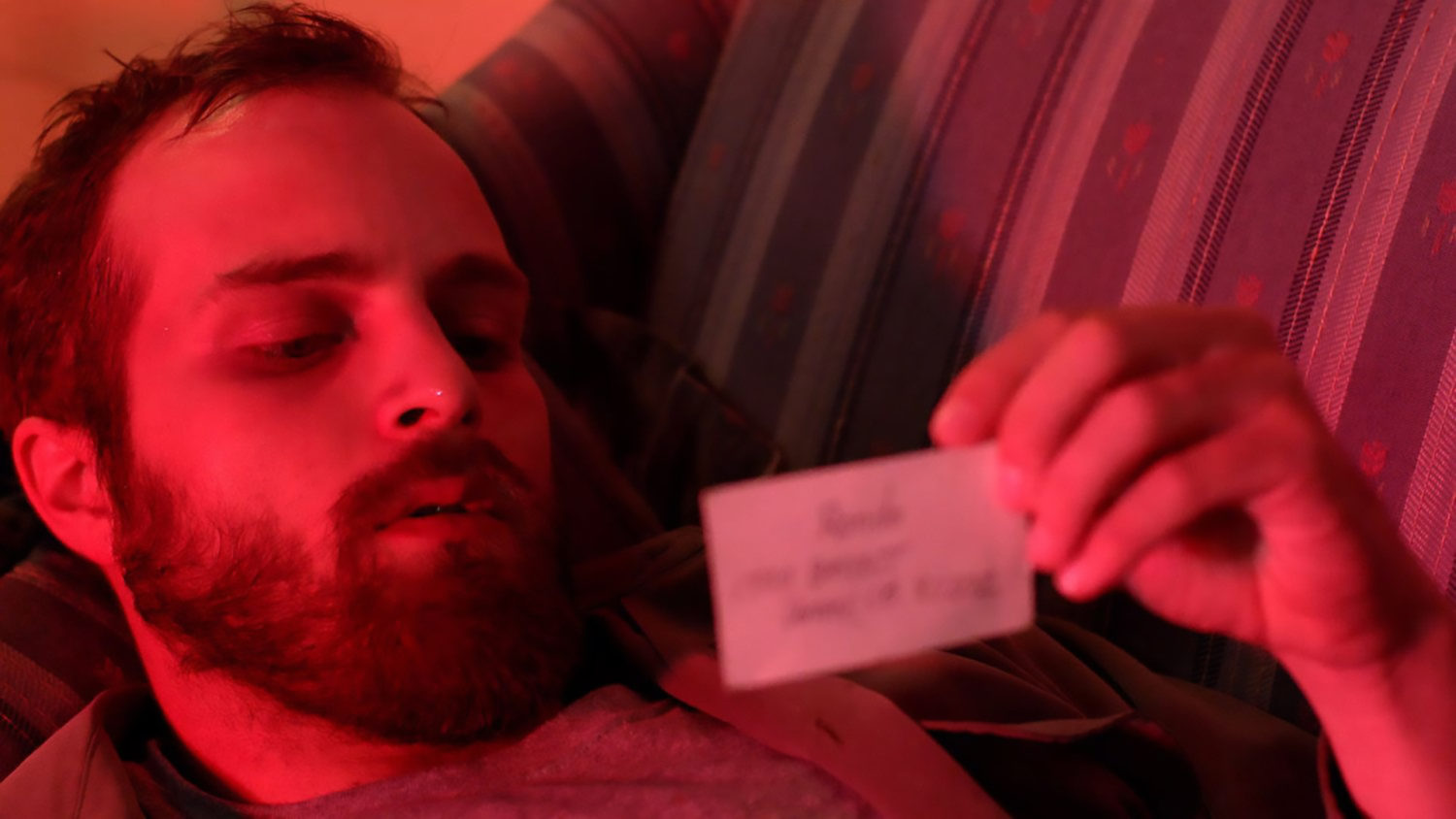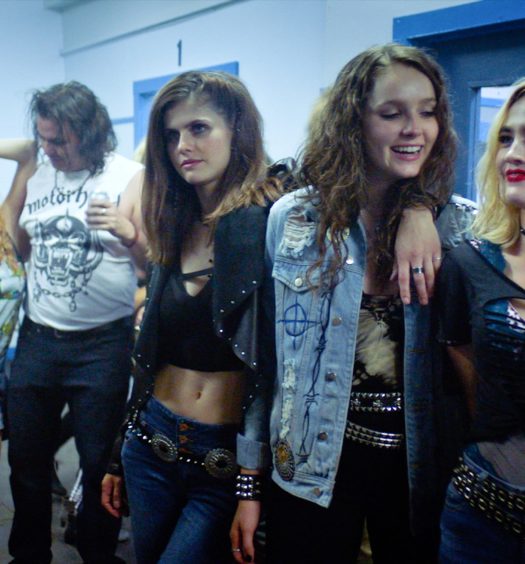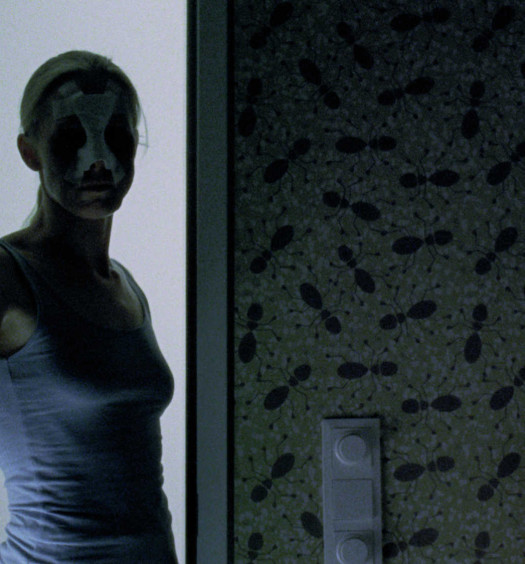I’ve been sitting with Rondo for three weeks now, trying to write a review that’s honest to the movie and its filmmakers. Nearly a month later, and I’m still thinking about it, which should say a lot – even with its flaws. To say it’s like nothing you’ve seen before is trite. It’s also dishonest to use such language. Rondo is an odd indie flick that shows writer-director Drew Barnhardt has skill.
Rondo follows a troubled veteran, Paul (Luke Sorge), on his journey back to civilian life. However, a therapist he visits, recommended by his sister Jill (Brenna Otts), has an odd prescription to deal with Paul’s weakened psyche. Paul quickly learns his medicine is a ticket for murder. There are exploitative undertones drizzled throughout the film, with uncomfortable scenes of sex and death. But underlying everything is revenge – revenge for Paul to return to civilian life and revenge for a murdered loved one. There’s a major twist in the movie that makes discussing the ending difficult. However, it is a satisfying and bloody conclusion.
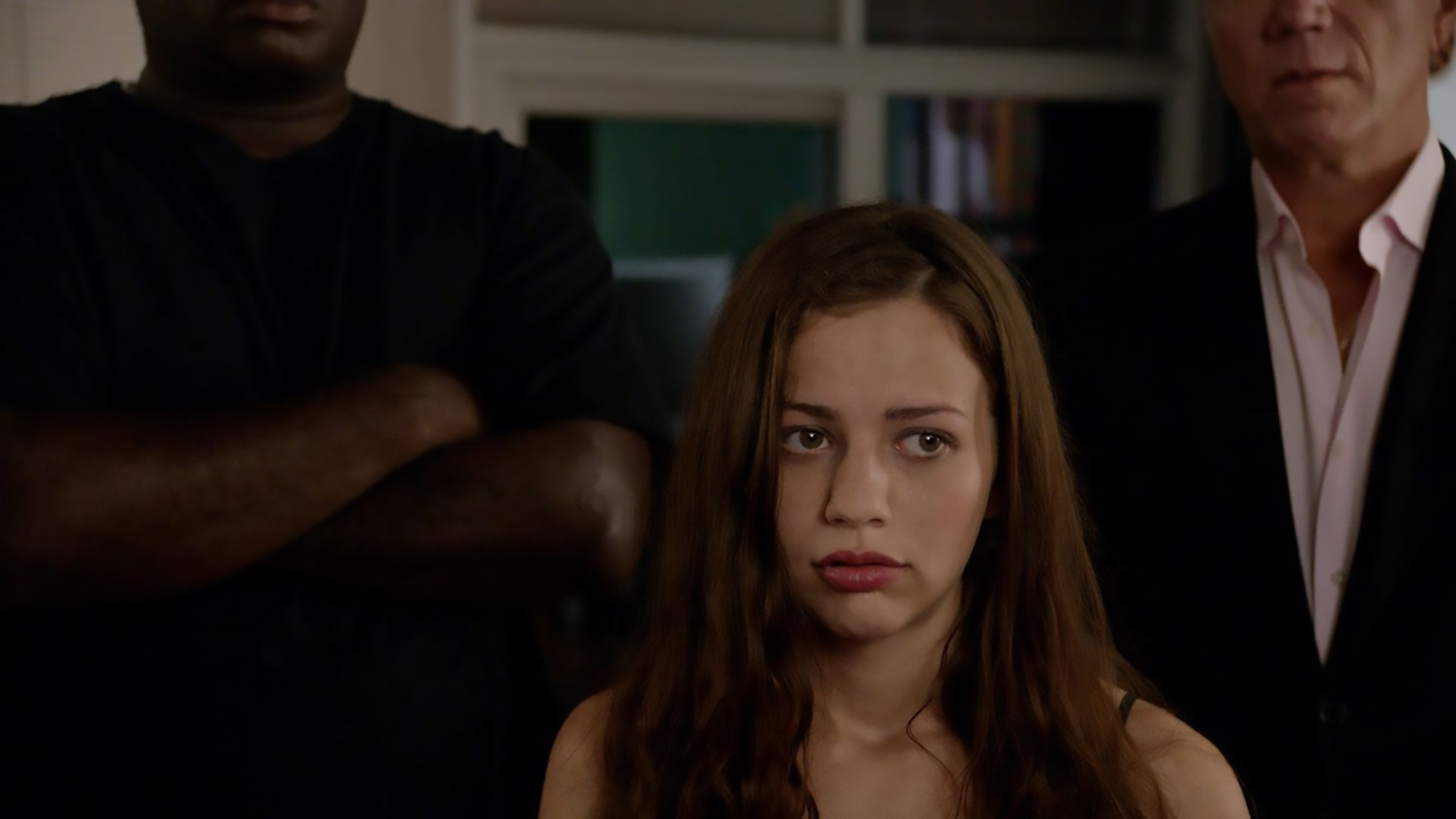
Everything about Rondo feels designed to make the viewer uneasy.
Everything about Rondo feels designed to make the viewer uneasy. The look of the movie is slick, which hinges on voyeuristic. Shots linger for far longer than they comfortably should, only heightening the uncertainty of the movie. If the goal of Rondo was to make the audience uncomfortable, it was a success.
The characters feel larger than life, almost caricatures of despicable people doing despicable things. But beneath that is a hint of truth about rich and powerful men living out depraved fantasies. With enough money, anything is possible, right? Everyone has a price, and sometimes the check is paid with one life – or three. Looking in, Rondo feels like a peek at an underworld we think could exist while hoping it doesn’t.
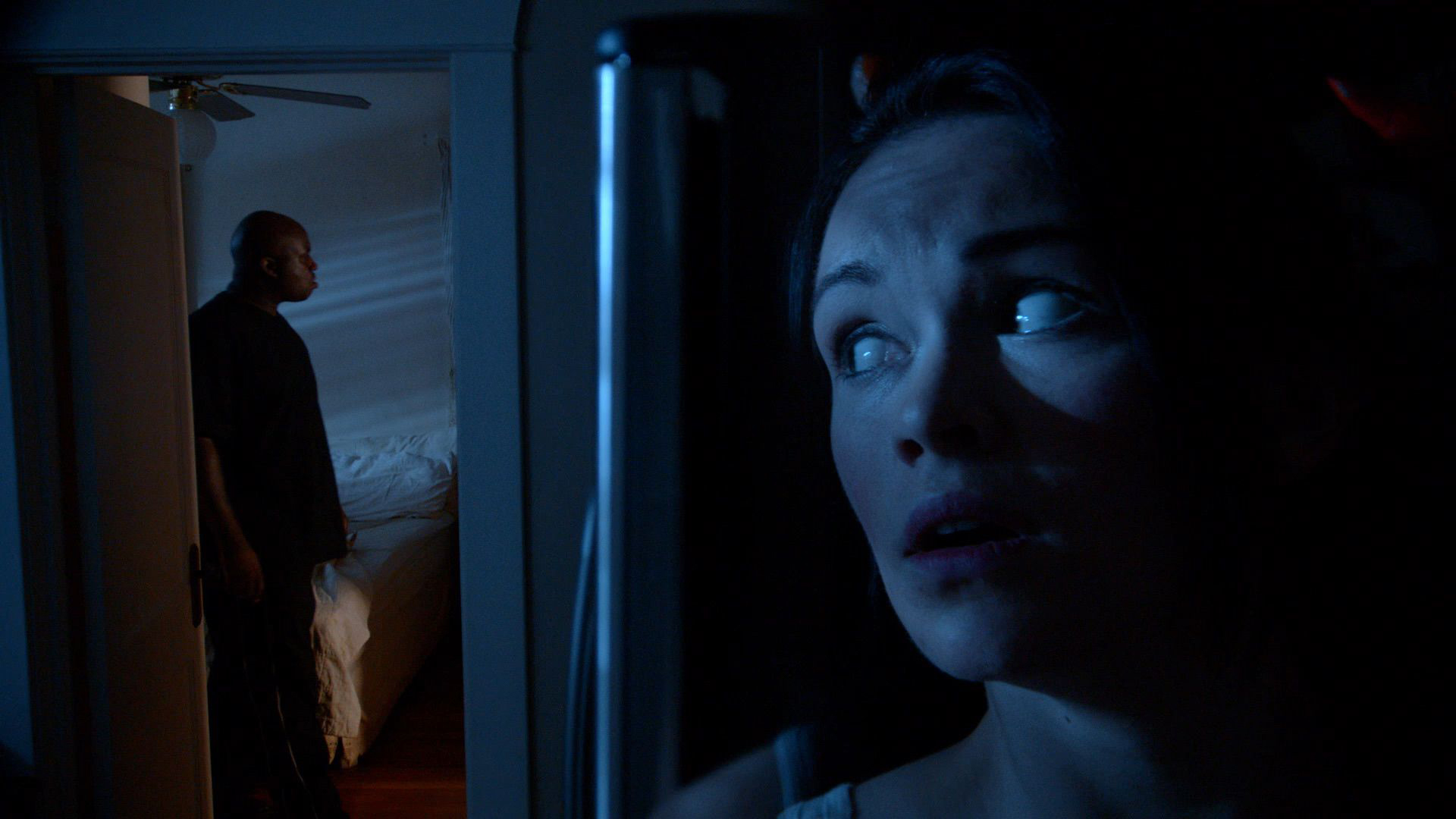
Rondo is an odd indie flick that shows writer-director Drew Barnhardt has skill.
Where Rondo falters is with its dialogue. At times, it’s a bit clunky, and at others, it’s doing a lot of work to convey the story to the audience. Acting suffers from this, but it’s not distracting, and its’ an unlikely representation of the actors’ skills. Some scenes are a bit heavy-handed, but with Rondo, the awkwardness works. If this were any other movie, the dialogue would need to be better. With Rondo, it intertwines itself with the almost surreal feeling the film exudes.
Even with the words above, I still don’t feel I’m doing Rondo right. It’s a difficult movie to explain – not because it’s some wild experimental indie flick – but because, with all its flaws and otherwise off-putting nature, shows a glimmer of promise from Barnhardt. The story is compelling – one I’d like to see explored with a bigger budget. The acting and dialogue are clunky, but that’s something a writer can learn with patience and practice.
Rondo may not be for everyone, and its flaws and style may dissuade some from giving it a chance. However, underneath, it shows a writer and director with promise, and that’s what’s exciting about it.
Rondo made its world premiere at the 2018 Fantasia International Film Festival.
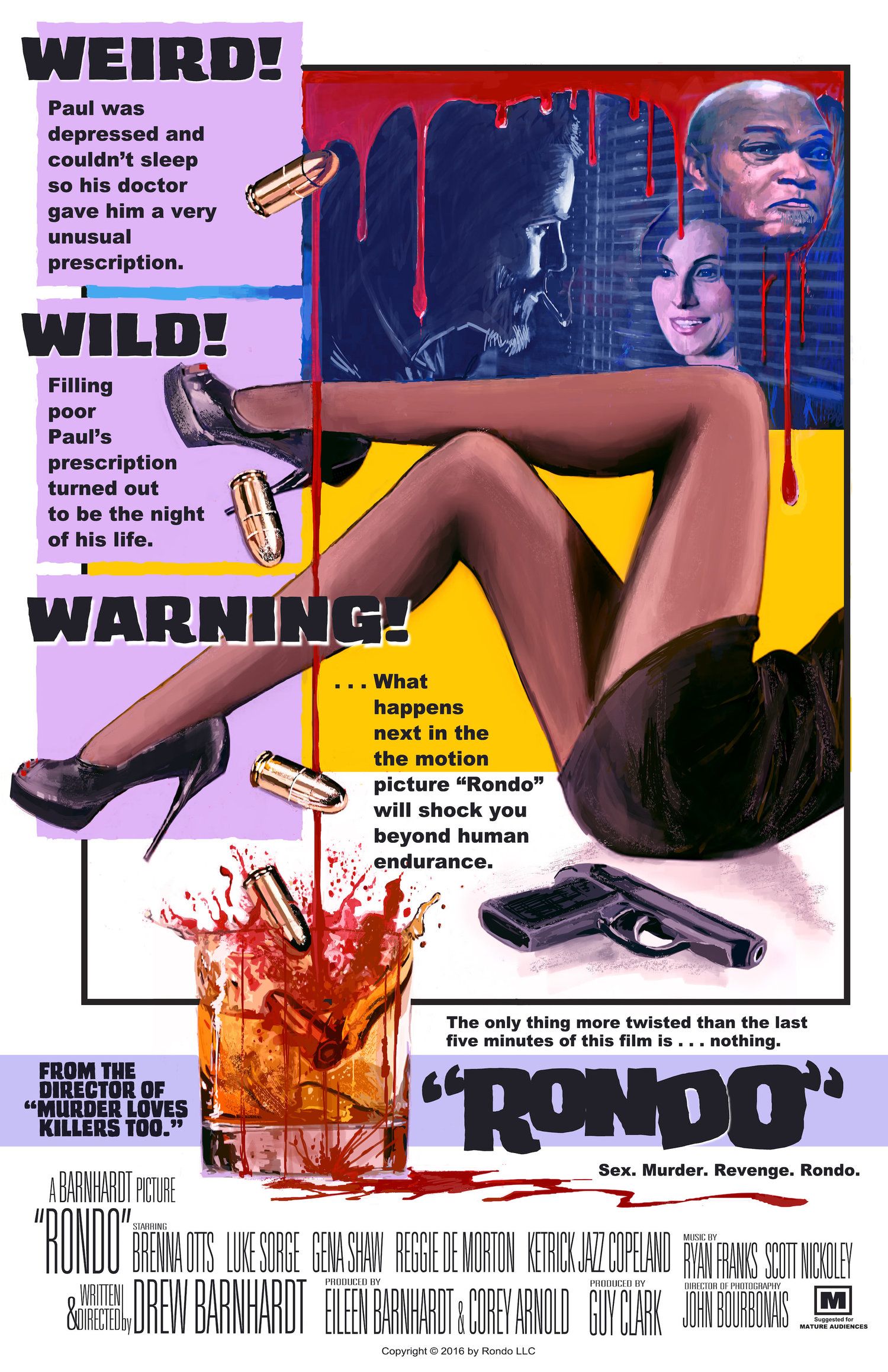
Fantasia 2018: Follow Exploitation Fantasies Of The Rich In Rondo [Review]
Voyeuristic
Rondo is an uncomfortable film to watch that shows promise while it circumvents its flaws with a compelling story.

